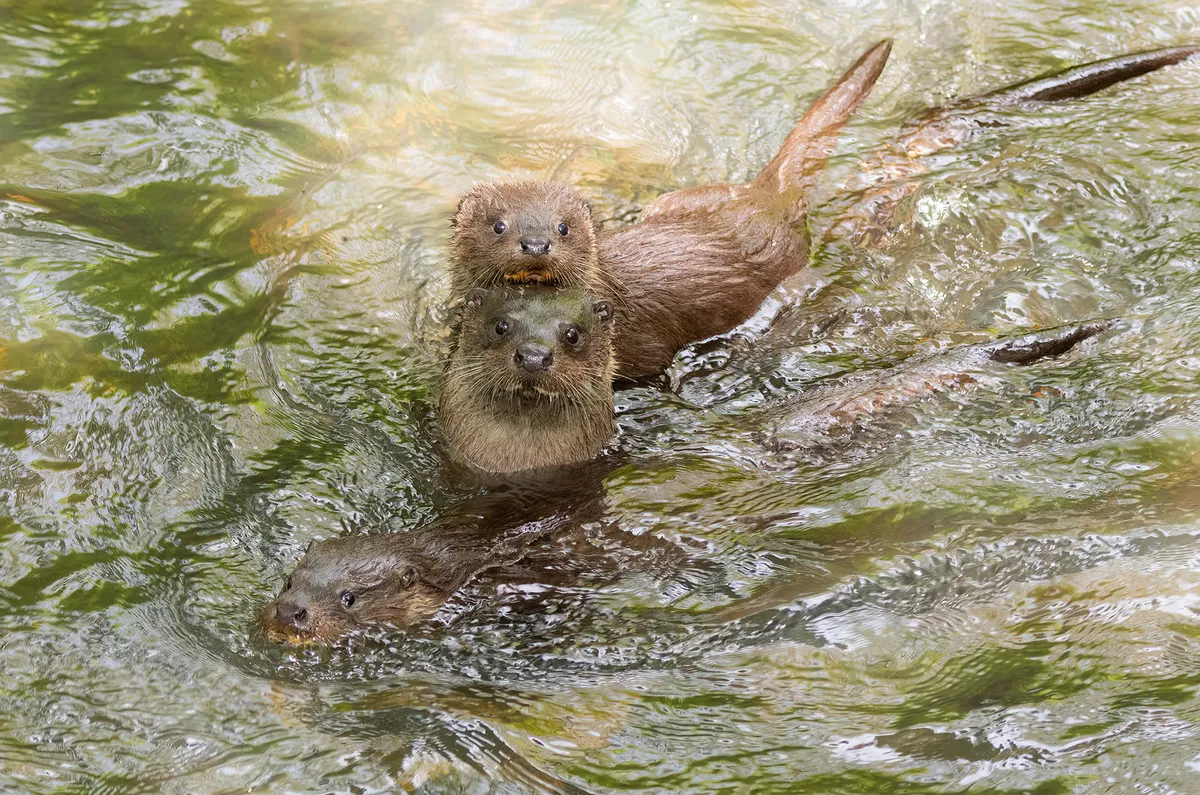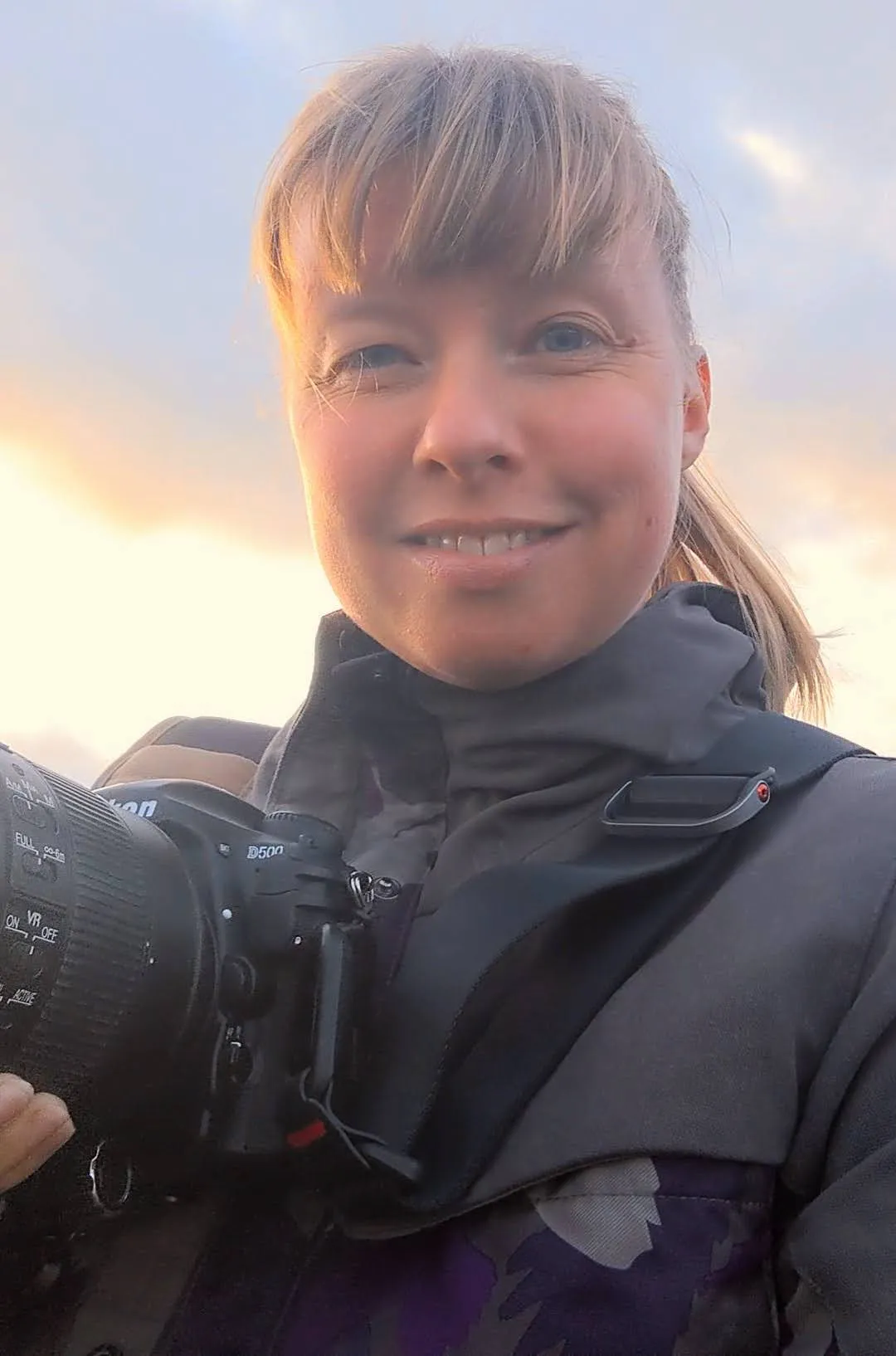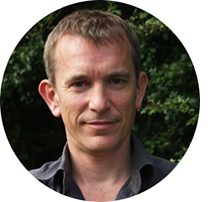Describe a special place, we asked – somewhere nature thrills you. Sure enough, entrants to the 2022 BBC Countryfile Magazine New Nature Writer of the Year Competition soon filled our inbox with beautiful, lyrical writing. Many, including our winner, celebrated rural places, but some – including our first of three runners-up, Rhiannon Law – described thrilling encounters with nature in urban settings.
Rhiannon lives in Glasgow, where the startling encounter described below took place. Read more about her below. First: her moving entry about the power of nature to lighten a mind weighed down by guilt and to help put problems in perspective.
By the way, not only did Rhiannon also write a highly commended entry in the 2021 competition, she is a talented photographer, too – she even sent us a beautiful shot of the creatures she spotted on the morning that inspired her story.
BBC Countryfile Magazine New Nature Writer of the Year: runner-up 1
Bridging
by Rhiannon Law
Bad news hangs heavy over me, like the tangle of leaf-laden branches partially obscuring the path ahead. Guilt is the crow that bounces behind me, cracking and cawing the reminder of its presence. Thankfully, it only takes a few minutes to walk the length of the football pitch and reach the shadowy river bank that runs along the edge of the park. There is nothing special about this place, but the bridge at its heart provides a shortcut to greener spaces.
I stand halfway across the small structure, only wide enough for two people to pass, rest my elbows on the steel and bury my head for a moment; cold comfort. The usually shallow burn is swollen with recent rainfall, obscuring the human detritus. Although I can't see it, I know that the bright yellow road sign rusting on the river bed says Cogan Rd and the arrow points towards home, a five-minute walk back the way I've just come. The surface current and the salt water in my eyes ensure it is a blur today. Creaking tree limbs emit high pitch squeals when a gust of wind blows through them. As they sway above, the dapples of hot and harsh mid-afternoon sunlight find me; shining searchlights on my arms. I turn to leave. There's no point going for a walk if you're not going to move forward. I must get over it.
A couple of steps away from the end of the bridge, there is an audible splash. I turn to see a male blackbird hurtle past and land on the bank a short distance away, hurling obscenities from his new perch. Looking back up the river to see what has provoked this outburst, there is movement in the water. Something shiny, sodden, shifting out of the river and into the undergrowth. Hopeful. Silence. Nothing. Get over it.
I am making my way towards the road ahead when there is a commotion in the bushes, and the branches nearest the river shake violently. In my head, I quickly run through the lineup of local wildlife suspects large enough to rouse this kind of ruckus. Maybe a dog is running loose. Then more than one brown body glistens in the greenery. A familiar face pops up from the water. It's a whiskered wonder from books and TV programmes but never seen in the flesh before. They are otters – a mother with two cubs. I have waited many years to see just one and a whole family have arrived.
having yearned for this moment, I find myself woefully unprepared for the adrenaline rush. I am holding my breath, fearful that simply exhaling will prove the otters to be a mirage
Cleaner water has meant that you can get lucky and spot an otter in Glasgow, but they still have a somewhat mythical quality. Someone always knows someone else who's seen them. Too nervous to walk alone in the city at dawn or dusk, crepuscular creatures like these usually elude me. So, having yearned for this moment, I find myself woefully unprepared for the adrenaline rush. I am holding my breath, fearful that simply exhaling will prove the otters to be a mirage.
No, they are real. Emerging from the shelter of the bank, they swim confidently against the current towards the bridge. The female watches me calmly while her babies swim circles around her. The smallest cub paddles to her back and climbs aboard, its head appearing on top of hers. The battle for king of the castle begins, and the siblings quickly submerge their mother with their antics. After a couple of minutes of frolicking together, she decides that playtime - and our encounter - is over. They dive in unison. Ten out of ten for synchronisation. Their chocolate bodies melt into the river and become indistinguishable shapes flowing downstream while a lump surfaces in my throat. One sob shudders from my chest. Then more come in waves, crashing through me. Surprise. Joy. Release. I struggle to get over it.

Clinging onto the metal rail for support, I turn my wet face left and right to see if this was a shared moment, but no one else is around. There is just the blackbird for company, while the protective arms of the trees along the bank shelter me from scrutiny. There is something special about this place.
Before heading home, I lean over the bridge and peer downriver. The otters have moved on, but solace has seeped into my bones, giving me new strength. I know I can get over this.
Words by Rhiannon Law
What the judges said...
Gillian Burke: "Very honest writing with a strong start. I enjoyed how the writer’s inner turmoil was projected onto the natural world making details, like the singing blackbird 'hurling obscenities', quite unexpected and very compelling."
– Gillian is a biologist, writer and presenter of BBC Springwatch
Nicola Chester: "Beautifully crafted – I really liked the 'signs and symbols' you pick out, to build the piece – the river bed road sign pointing home, the dappled sun 'shining searchlights' on your arm; the getting over bridges. Of seeing a wild creature familiar from books and TV, in such an 'ordinary' place, out of a crepuscular time you are excluded from – the transformative power of an encounter. Really lovely."
– Nicola is the author of On Gallows Down, winner of the Richard Jefferies Award for the best nature writing published in 2021
Cal Flyn: "I loved this piece about an unexpected wildlife encounter in the urban fringes. Beautifully written. It underlined to me how brushes with the non-human can force us to recalibrate, and encourage us to look beyond ourselves."
– Cal is a journalist and the author of Islands of Abandonment, shortlisted for the James Cropper Wainwright Prize 2021 for Nature Writing
Meet Rhiannon, runner-up in the BBC Countryfile Magazine New Nature Writer Competition 2022

Name: Rhiannon Law
Age: 41
Based: Glasgow
Work: Digital communications officer
Where was the location in the story? The bridge in the story is a very short walk away from my flat in the southside of the city. It is in a small park that is mostly used as a thoroughfare between two busy roads.
Is time spent in natural surroundings good for your mental health? Absolutely! As you can probably gather from my story, nature never fails to lift my spirits. I'm also an amateur wildlife photographer and carry my camera with me on my daily walks. Capturing images forces me to slow down and focus (apologies for the pun!) completely on being in the moment with the wildlife I'm watching. Later, I like to blog about these encounters as a way of reflecting on what happened through words as well as the photos I've taken.
What inspired you to write about nature? I have always enjoyed writing and reading. When I was a child, I wrote stories all the time. As I got older, I got out of the habit of writing. It was my wildlife photography that kick-started my writing again, as I wanted to provide context for the images I was capturing and have a reason for publishing them. Writing blogs seemed the best way to do this.
Have you ever trained in nature writing? I have completed a couple of very short online courses but haven't had any formal training.
Would you like to do more nature writing – for example, a book? I would love to write a book that inspires others to explore urban green spaces.
What in particular would you like to explore in your nature writing? I am particularly interested in urban wildlife and the wild spaces that can be found close to home but I would also like to advocate for species that are often portrayed negatively in the UK popular press, such as gulls, corvids and foxes.
What areas of the countryside do you enjoy? I am incredibly lucky because Glasgow is so close to the sea, hills, rivers, lochs and woodlands and there is a huge variety of wildlife wherever you look. No walk is the same! I particularly love being by the coast – there is something about the smell of seaweed and the salty breeze on my skin that I find irresistible.
What were the rules of the 2022 New Nature Writer Competition?
Have a look here to read the brief our writers were responding to and find out if you might be eligible for next year's competition.
Where can I read more nature writing entries?
Read the winning entries from 2021, the inaugural BBC Countryfile New Nature Writer Competition.
How do I enter next year’s New Nature Writer competition?
Look out for details here at countryfile.com in April 2023.

